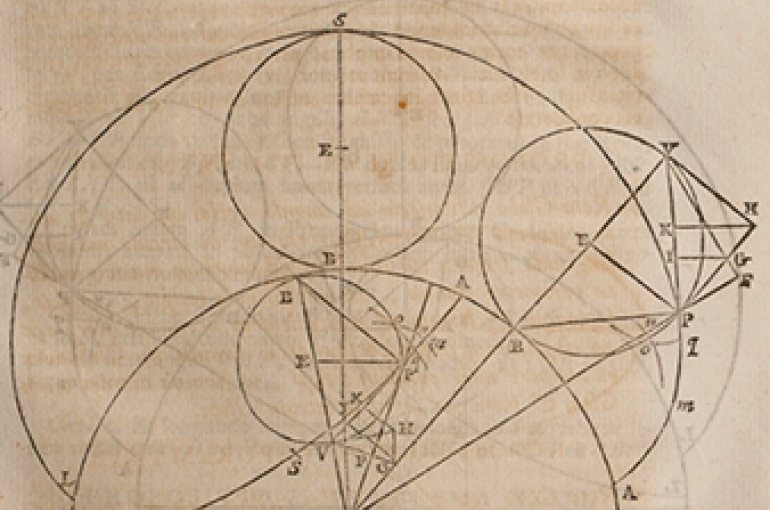Descartes-Huygens Lezing door John Bennett Shank over ‘Newtoniaanse’ mechanica in Frankrijk rond 1700 (16 juni 2016)
23 mei 2016
Op 16 juni houdt prof. John Bennett Shank (University of Minnesota) de jaarlijkse Descartes-Huygens lezing, die dit jaar voor de 9e keer plaatsvindt. Zijn lezing is getiteld: ‘There was no such thing as the ‘Newtonian Revolution’ and the French initiated It. Making ‘Newtonian?’ mechanics in France around 1700.’ De lezing is een gezamenlijk initiatief van het Descartes Centre for the History and Philosophy of the Sciences and the Humanities (Universiteit Utrecht) en Huygens ING.
Abstract
Shank: “When we call the foundational science of mechanics that we teach to all introductory Physics students ‘classical Newtonian mechanics’, we implicitly invoke a historical narrative that makes Newton’s Principia the decisive source for this particular scientific achievement. Yet the actual historical creation of calculus-based mathematical mechanics in the decades around 1700 was anything but an outcome singularly determined by Newton’s titanic genius or the science found in his monumental Principia mathematica of 1687.
My forthcoming book, Before Voltaire: Making “Newtonian?” Mechanics in France around 1700, offers a more historically nuanced account of the emergence of analytical mechanics between 1685 and 1715, and in this talk I will summarize the highlights of my argument. In particular, I will describe the contingent historical developments that produced this scientific outcome primarily in France, especially the distinctive institutional culture of the Parisian Académie Royale des Sciences and the broader culture that supported the practice of mathematics there.
Analytical mechanics in my telling is something other than the inspired offspring of Newton’s divine genius, and in my talk I will survey the contingent historical particularities that actually produced this science in France in the decades around 1700.”
John Bennett Shank is Associate Professor and Distinguished University Teaching Professor in the Department of History at the University of Minnesota and Director of the Center for Early Modern History (http://www.cemh.umn.edu) and the Andrew W. Mellon Foundation Consortium for the Study of the Premodern World (http://premodern.umn.edu).
Time and venue
The lecture takes place at the Lutherse Kerk, Hamburgerstraat 9, Utrecht. Coffee and tea are served from 15:00 on, the lecture starts at 15:30. Drinks afterwards. Entrance is free of charge; no registration is required.
